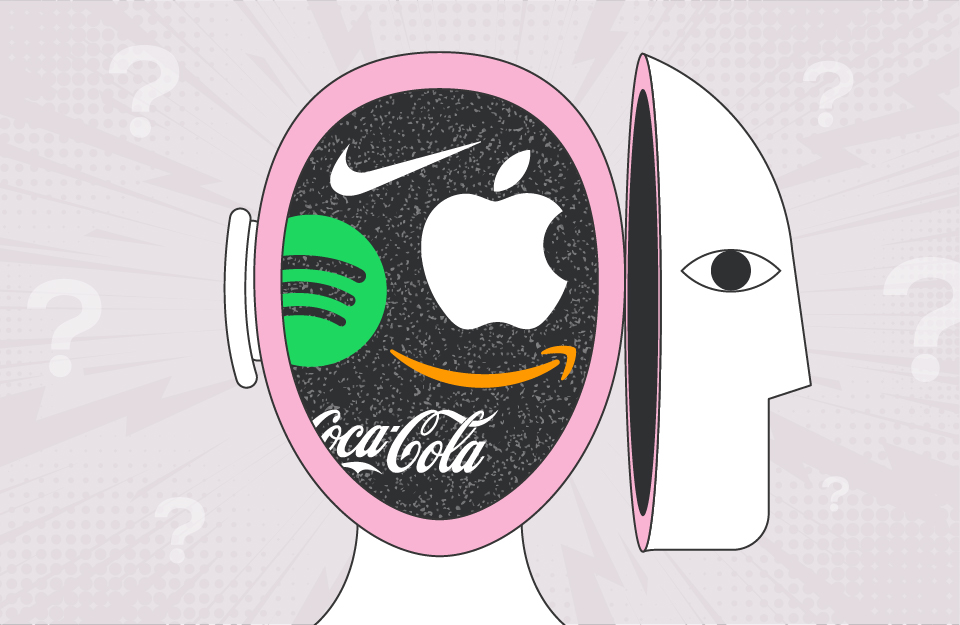Both ethically and practically, website accessibility is important to ensure that all people have access to your site, regardless of their age or ability. In doing so you’ll create greater diversity among your customer base and user base and increase traffic and business opportunities from people with disabilities.
Why You Should Prioritise Website Accessibility
1. You’ll reach a significantly wider audience
Understanding the user experience from different user perspectives is key. Everyone deserves access to information and opportunities, regardless of their ability. So, make your site inclusive and welcoming for all!
Several different disabilities can affect website accessibility, including visual impairment, hearing impairment, mobility impairments and cognitive impairments. Each disability can present unique challenges when trying to access the internet.
For example, visually impaired people may need larger text or more contrast on the screen. Some may also choose to draw on the capabilities of screen reading technology as an aid. Visual impairments include colour blindness, low vision (which may include difficulty seeing shapes and objects), and total blindness.
People who are deaf or hard of hearing may have difficulty digesting video or audio content on your site. Therefore, they will need a text transcript for those files so they can read along instead of listening.
People with ADHD, Asperger’s Syndrome, and other cognitive disabilities may need simplified text and fewer distractions to aid their understanding of your on-page content.
Some people with mobility impairments may not be able to use a mouse or navigate a standard website. Instead, they benefit from buttons and links that are large enough to be easily clicked with a finger.
2. You’ll attract and convert more customers
By ensuring that your website is accessible to everyone, you’ll open yourself up to a whole new audience. Who knows, perhaps they already have an interest in what you offer. Some might even be brand advocates of your competitor’s products/services simply because their website has a superior user experience.
In addition to attracting new customers, people with disabilities are more likely to complete purchases on websites they can access. They are also much less likely than other shoppers to abandon their carts at checkout if the user journey is simple. This means you could potentially increase your revenue just by making your website accessible.
3. You’ll be compliant with government regulations
Many of the websites we design and develop target international audiences. This makes it imperative that we consider the accessibility laws around the world. W3C’s Web Content Accessibility Guidelines (WCAG) are designed to make the internet accessible for people with disabilities. They are a set of best practices for creating websites accessible to people with disabilities.
The guidelines cover topics such as making text readable, providing alternatives for audio and video content, and more. Making your website compliant with the WCAG will ensure that it is accessible to people who have disabilities or limited access to technology for other reasons.
Many countries have laws requiring businesses to make their websites accessible, with failures to comply carrying heavy fines. For example, in the United States, the Americans with Disabilities Act (ADA) requires all public entities and commercial facilities to be ADA compliant. This includes making your website accessible to those with disabilities.
In the UK, the Equality Act 2010 requires all businesses to make “reasonable adjustments” to ensure that people with disabilities can access their goods, services, and premises. And this includes your website.
Australia has a similar law called The Disability Discrimination Act 1992.
Canada, France, Spain, Chile, India, Mexico, South Africa, and Japan also have accessibility standards to meet with websites. So, if you have an international audience and are not already making your website accessible, it’s time to start.
4. You’ll improve your search engine rankings
Google, Bing, and other search engines all recognise when a website is accessible – and they reward you by ranking your site higher in the search results, which means more traffic for you. So, if you want to compete online, then accessibility should be at the top of your list.
If you have an e-commerce site or service of any kind, your website must be accessible to all. As a result, you’ll reach a wider audience and boost sales by ensuring everyone can find your products, regardless of how they prefer to access the internet.
5. You’ll improve the user experience for all your visitors
Making your website accessible to people with disabilities will also improve the user experience for all your visitors.
You might include a larger button or menu item that someone can click on easily, for example. This button will also be useful for visitors who are using touch screens and need something large enough to tap accurately. It’s a simple change in design but a big win for conversion.
Getting rid of annoying pop-ups that obscure the information people are trying to read is another example of how making your website accessible can improve the user experience for all visitors.
Making sure that you have a clear call-to-action on every page will also benefit everyone who visits your site, not just those with disabilities.
Designing and Building for Accessibility as Standard
To ensure that all users have equal access to the content and functionality of a website we build accessibility into all our websites as standard.
Some of the things we do to ensure our websites are accessible include:
– using best practice in writing for the web
– using clear headings and subheadings to break up the content
– writing in plain English, avoiding jargon, acronyms and abbreviations where possible
– using accessible HTML code
– including subtitles, transcripts, captions and descriptions for all multimedia content
– using clear, concise language
– avoiding obtrusive advertising
– providing detailed descriptions of all downloadable documents
Is your website not currently accessible to those with disabilities or you’re planning a new site? Get in touch or click here to learn about our website design credentials.
We can help you make sure that it complies with web accessibility guidelines so that everyone has equal access to the information.
Artificial Intelligence is Helping to Make the Internet More Accessible
There’s no excuse – every website can be made accessible. We’re partnering with Accessibe – to help them achieve their wonderful vision of the entire internet being accessible to people with disabilities by 2025. With the ever-growing power of artificial intelligence, they’re making sure that everyone can access the internet, regardless of ability.
This website is Accessibe enabled – just click on the little yellow person icon bottom right of the browser and you’ll see an accessibility control panel. For those with disabilities, they will likely be relying upon a screen reader to read aloud all the text on a website. Accessibe recognises this automatically.
You can also customise Accessibe to suit your needs – so if you need larger fonts, or want to change the colours and contrast of the website, you can do that too. it’s a great way to start and we then can work on making your multimedia content accessible too.
We can apply Accessibe to your website in minutes and the low monthly subscription fee is worth every penny.
You can make a difference in the lives of millions of people and improve your search engine rankings at the same time – what are you waiting for?
Click here to learn more about how we create unforgettable user experiences, available to everyone.
We hope to hear from you soon.
Thanks for stopping by.
The Elastic Team




